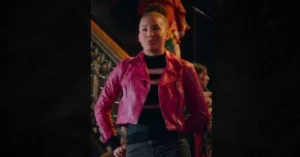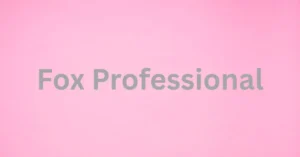In the constantly evolving terrain of the internet, where platforms emerge and disappear in rapid succession, some stand out not just because of their design or utility, but because they pose a challenge to the very notion of what online communities and information repositories can become. Zolaaa.org, a platform that at first glance appears cryptic in name but quickly reveals its layered utility, represents one such example—a next-generation digital space structured around the principles of open knowledge, digital equity, and user-centered interaction.
At a time when debates about content moderation, platform transparency, and online autonomy are more vital than ever, Zolaaa.org arrives not just as another dot-org, but as a response to deeper questions: Who owns the internet’s knowledge? How can we share it responsibly? And what roles do users, contributors, and communities play in shaping that access?
This article dissects the identity and growing influence of Zolaaa.org, focusing on its origin, structure, user philosophy, functional landscape, and cultural implications in today’s digital society. Modeled stylistically after The New York Times, we move beyond press-release simplicity into a nuanced understanding of what makes Zolaaa.org a subject worthy of close attention.
Origins and Philosophy: The Foundation of Zolaaa.org
Zolaaa.org did not originate from a conventional startup ecosystem. Rather than seed-funded ambition, it emerged from a consortium of digital humanitarians, coders, and researchers seeking to provide an open-access platform where crowdsourced insight meets verified expertise. Think of it as a crossbreed between a decentralized wiki, an academic archive, and a social forum—each element drawn together under a minimalist interface and mission-driven identity.
The founders, who maintain a low public profile, describe Zolaaa.org as “an epistemic commons”—a place where information is not simply stored or indexed, but actively cultivated. Users are encouraged to participate not only by contributing data or writing entries but by engaging in discussions, offering counterpoints, and embedding references from diverse global sources.
Three Core Values Define Its Philosophy:
- Transparency Over Algorithmic Control: Unlike mainstream platforms governed by opaque recommendation systems, Zolaaa.org operates on open protocols where the logic behind content visibility is fully transparent.
- Community Moderation: Rather than outsourcing moderation to AI or centralized staff, the platform employs layered peer-review systems supported by topic-specific councils.
- Global Equity in Content Contribution: Multilingual support and inclusive onboarding processes ensure users from different geographies can contribute and benefit equally.
Navigating the Platform: What Zolaaa.org Offers
Though still evolving in functionality, Zolaaa.org presents a multi-pronged user experience that combines archival structure with dynamic interaction:
1. Knowledge Clusters
These are thematic hubs—similar to Wikipedia categories but more interactive. A cluster could be “Indigenous Agriculture,” “Neural Interface Technology,” or “Non-Western Philosophies.” Within each, users find curated entries, open-ended threads, video explainers, annotated bibliographies, and interactive timelines.
Each cluster is governed by open charters that describe its purpose and citation standards, allowing users to contest or update entries in a transparent format.
2. Discussion Layers
Every entry has associated layers for commentary. These range from footnote-style clarifications to full debate threads. Contributors may vote, cite, or challenge claims, encouraging what the platform calls “constructive dissent.”
Unlike most comment sections, which often devolve into chaos, these discussions are moderated by cluster-specific councils—groups of volunteer editors who are elected based on contribution history and peer endorsements.
3. Peer-Reviewed Publishing
Zolaaa.org has begun piloting an academic overlay where researchers can submit papers for community-sourced peer review. This initiative is designed to complement rather than replace traditional journals, offering an alternative route for early-stage or interdisciplinary work that might not find conventional publishing homes.
The platform offers DOI assignments, structured citation indexing, and an option for open peer commentary.
4. Digital Toolkits and Resources
Beyond content, Zolaaa.org provides a library of digital toolkits. These include:
- Open-source bibliographic tools
- Data visualization modules
- Multilingual writing aids
- Templates for research, policy analysis, and cultural documentation
Identity and Community: Who Uses Zolaaa.org?
The user base of Zolaaa.org is as eclectic as the content it houses. Early users were primarily academics, digital archivists, and open-source developers. Over time, it has attracted:
- Independent Researchers seeking collaborative feedback
- Civic Organizations archiving local knowledge
- Students contributing to live academic clusters
- Marginalized Knowledge Holders preserving oral histories and cultural traditions often excluded from formal databases
What unites these contributors is a shared belief that information should not be treated as proprietary or static. The site’s design reinforces this ethos through features like “knowledge lineage” (a visible history of contributions and edits) and “collaborator callouts” that prompt topic experts to refine content.
The Technical Backbone: Architecture and Ethics
Zolaaa.org is built with decentralization in mind. Instead of a single server bank or proprietary infrastructure, it operates on a federated model:
- InterPlanetary File System (IPFS): Ensures that content is redundantly stored across a distributed network.
- Open Source Codebase: Hosted on public repositories and governed by community-elected maintainers.
- Ethical Analytics: Site metrics are anonymized and available for public audit, resisting the surveillance-based business model that dominates Silicon Valley.
Security protocols emphasize user autonomy. Every registered user holds encryption keys to their contributions, and deletion rights are enshrined in the Terms of Use.
Cultural Impact: Redefining Online Authority
Zolaaa.org challenges traditional models of information hierarchy. Where most platforms reinforce centralized expertise or brand-based authority, Zolaaa disperses authority across its network.
This approach invites users to ask harder questions about epistemic privilege—who gets to decide what counts as knowledge? And who benefits from the answers?
In practice, this leads to more pluralistic entries on controversial topics. For instance, the cluster on “Climate Narratives” includes:
- IPCC reports
- Indigenous climate observations
- Historical weather pattern archives
- Economic critiques of carbon markets
By juxtaposing these perspectives, Zolaaa.org avoids binary framing and allows for a richer, more contested understanding of global issues.
Case Examples: Zolaaa.org in Action
1. Community-Led Archive on Urban Displacement
Residents of a gentrifying neighborhood in South America used Zolaaa.org to document their experiences, map eviction trends, and create a living historical record visible to policymakers and NGOs.
2. Decolonial Science Education Cluster
An open curriculum on indigenous knowledge systems and their relation to western science curricula was co-created by educators, elders, and students from five countries.
3. Crisis Information Hub During Regional Flooding
Real-time updates, satellite data, local narratives, and official advisories were cross-referenced in a dedicated cluster that served as a vital resource for relief coordination.
Governance and Funding
Zolaaa.org is maintained by a foundation structured as a digital cooperative. Governance is democratic, with key decisions voted on by stakeholder members, including developers, top contributors, and institutional partners.
Funding sources include:
- Public grants
- Institutional sponsorships
- Crowdsourced donations
Importantly, Zolaaa.org is committed to remaining ad-free and free to use.
Challenges and Criticisms
As with any ambitious platform, Zolaaa.org faces several growing pains:
1. Scalability
Federated infrastructure can face synchronization delays. The development team is working on caching solutions and AI-assisted indexing to scale efficiently.
2. Content Verification
While openness is a strength, it also invites misinformation risks. The platform is piloting reputation-based trust scores to support content quality without enforcing rigid gatekeeping.
3. User Onboarding
The site’s rich functionality can be intimidating. Guided walkthroughs, mentor pairings, and gamified learning are being introduced to lower entry barriers.
Looking Ahead: What’s Next for Zolaaa.org?
1. Mobile App Deployment
A mobile-first version with offline contribution modes is in beta. This will support rural educators, field researchers, and crisis workers in low-connectivity zones.
2. Decentralized Credentialing
In partnership with blockchain educators, Zolaaa.org is experimenting with verifiable micro-credentials for users who contribute significantly to knowledge clusters.
3. Interoperability with Academic Databases
Efforts are underway to integrate Zolaaa.org citations into Google Scholar, Scopus, and university repositories to legitimize its alternative knowledge production model.
4. Regional Language Expansion
Language packs for Tamil, Swahili, Tagalog, and Navajo are in progress—further extending the platform’s commitment to global inclusivity.
Final Thoughts: Why Zolaaa.org Matters Now
At its core, Zolaaa.org is not just another content platform—it’s a provocation. It asks us to reconsider what we do with knowledge, who participates in its creation, and how we preserve its nuances in an increasingly polarized digital age.
It represents a defiant optimism in the power of shared understanding, one grounded not in algorithms or advertising, but in the collective effort of a global community. Whether you’re a student, researcher, activist, or simply a curious digital citizen, Zolaaa.org offers more than information—it offers participation.
In a time where the line between noise and knowledge often blurs, Zolaaa.org is helping redraw it, with clarity, integrity, and a commitment to the idea that knowledge, when truly shared, can change the world.
For more information, click here.









